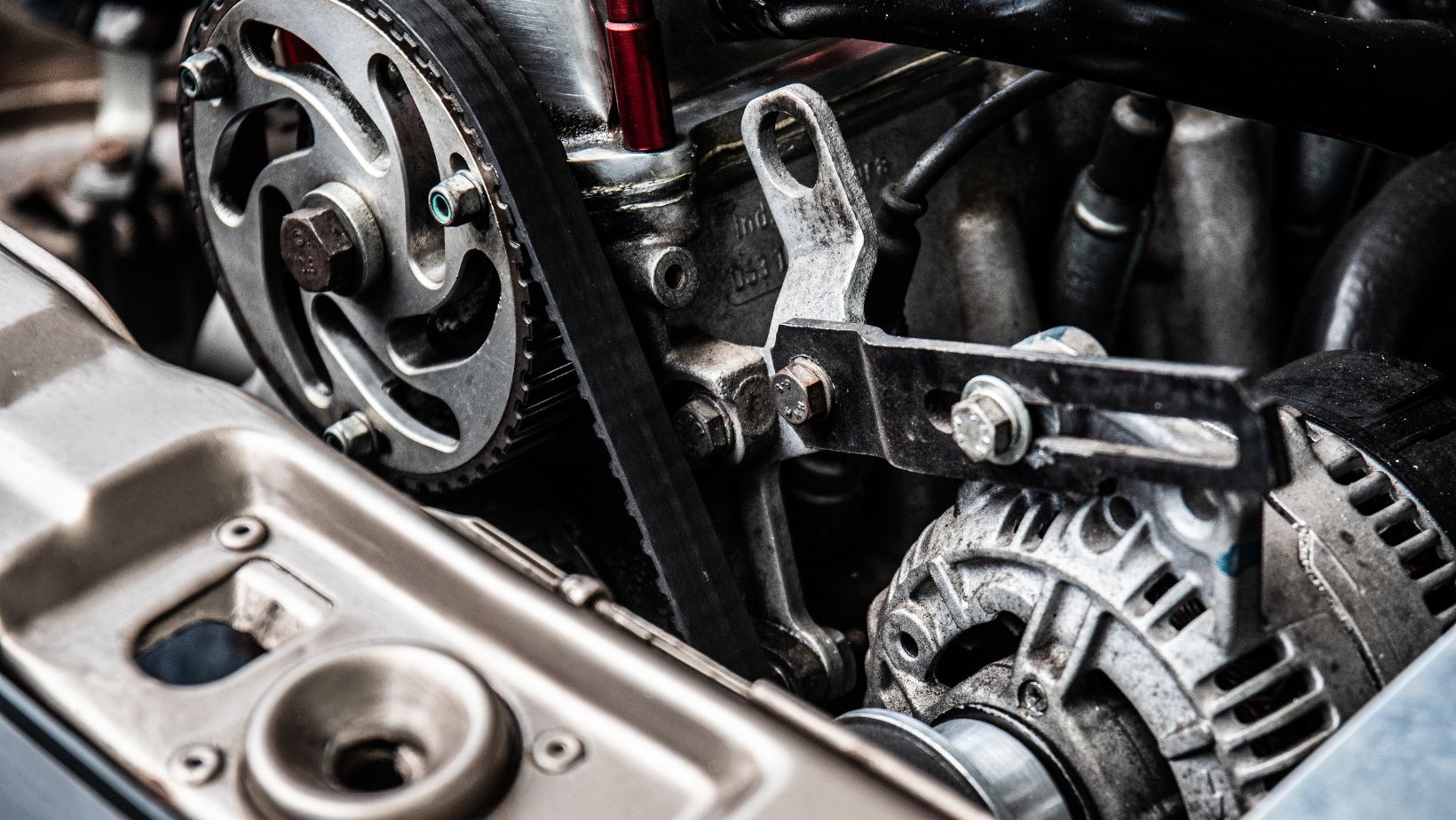Last Updated on October 14, 2023 by pm_author_91ksj
Why is my Engine so Loud When I Start my Car
One possible explanation for the loud engine noise at startup is a problem with the exhaust system. A faulty or damaged muffler, catalytic converter, or exhaust pipe can result in increased noise levels. Additionally, any leaks in the exhaust system may cause a louder sound as well. It’s important to have these components inspected by a professional to identify and fix any issues.
Another factor that may contribute to a noisy engine during startup is related to the lubrication of various engine parts. If there is insufficient oil or if the oil has deteriorated over time, it can lead to increased friction and louder operation. Regularly checking and changing your oil according to the manufacturer’s recommendations can help minimize excessive engine noise.
Lastly, problems with the timing belt or serpentine belt could also be responsible for the loud noise when starting your car’s engine. If these belts become worn out or loose, they may produce unusual sounds at startup. Getting them inspected and replaced if necessary can address this issue.
Common Reasons For Loud Engine Noise at Startup
Ignition Timing Issues
One possible reason why your engine is loud when you start your car is due to ignition timing issues. The ignition timing refers to the precise moment when the spark plugs ignite the air-fuel mixture in the combustion chamber. If the timing is off, it can cause a misfire or inefficient combustion, resulting in a louder noise during startup.
Common causes of ignition timing issues include:
- Faulty spark plugs: Worn-out or damaged spark plugs may not create a strong enough spark, leading to improper ignition timing.
- Ignition system malfunction: Problems with components like the ignition coil or distributor can disrupt the proper firing sequence and affect timing.
- Engine sensors: Faulty sensors that provide input to the engine control unit (ECU) can cause incorrect calculations for fuel delivery and timing.
Worn Out Engine Mounts
Another potential cause of loud engine noise at startup could be worn out engine mounts. Engine mounts are responsible for securing and dampening vibrations from the engine. Over time, these mounts can deteriorate or become damaged, leading to increased vibrations and noise.
Signs of worn-out engine mounts include:
- Excessive vibration: You may feel excessive shaking or vibrating throughout your vehicle when starting up.
- Movement or shifting: If you notice movement or shifting of your engine while starting up, it could indicate weakened mounts.
- Clunking sounds: Worn-out mounts may produce clunking noises as they struggle to absorb vibrations effectively.
Exhaust System Leaks
A common culprit behind a loud engine noise during startup is an exhaust system leak. The exhaust system is responsible for channeling gases away from the engine and reducing noise levels. However, if there’s a leak in any of its components, such as the manifold, gaskets, or pipes, it can lead to increased noise levels.
Signs of an exhaust system leak include:
- Hissing or popping sounds: A noticeable hissing or popping sound when starting your car could indicate an exhaust leak.
- Strong smell: If you detect a strong odor of exhaust fumes inside your vehicle, it may be due to a leak.
- Reduced engine performance: An exhaust leak can also cause decreased power and efficiency.

Identifying Potential Engine Problems
When it comes to the question of why your engine is so loud when you start your car, there could be several potential problems at play. Understanding these issues can help you diagnose and address the source of the noise more effectively. Here are some common culprits:
- Exhaust System Issues: A malfunctioning or damaged exhaust system can cause excessive noise during engine startup. This could be due to a loose or broken muffler, exhaust pipe leaks, or issues with the catalytic converter.
- Worn Belts: Over time, belts in the engine compartment can wear out and become loose or misaligned. This can lead to squealing or screeching noises when starting your car. The most common belt involved in this scenario is the serpentine belt, which drives various components like the alternator and power steering pump. Starter Motor Issues: A faulty starter motor can also contribute to a loud engine noise upon startup. The starter motor engages with the flywheel to initiate engine ignition but may produce grinding or whining sounds if it’s worn out or not functioning properly.
- Engine Problems: In some cases, excessive noise during startup may point to underlying engine problems such as piston slap (caused by worn pistons), worn-out valve lifters, or even low oil levels affecting proper lubrication within the engine components.
In conclusion, the loudness of your engine when starting your car can be attributed to several factors. While it’s normal for engines to produce some noise during startup, excessive noise could indicate underlying issues that require attention. By understanding the potential causes and taking appropriate measures, you can address this concern effectively. To determine why your specific car is experiencing loudness at startup, I recommend consulting with a qualified mechanic who can diagnose any potential issues accurately through a thorough inspection of your vehicle.




